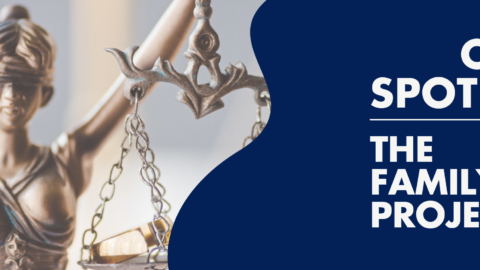Sherri Shepherd’s (formerly of “The View”) divorce has been one juicy headline after another. First, Shepherd and her husband, Lamar Sally, filed for divorce in different states. Their respective filings forced them to publicly acknowledge the existence of a prenuptial agreement and the pending birth of a child through a surrogate. Now, Shepherd is claiming that Sally defrauded her into signing the contract with the surrogate and refuses to acknowledge the child as hers. Ironically, Sally is claiming that Shepherd defrauded him into executing the prenup.
According to reports, Sally is the biological father of the child who was due in late July, but the egg came from a donor. Shepherd claims that Sally always intended to divorce her and forced her to have the child so that he could later obtain child support. Sally filed in California, which is viewed as a favorable state to surrogacy contracts and Shepherd filed in New Jersey, which is not.
Since Sally filed and served first, it is likely that California will take jurisdiction. The California Supreme Court in Johnson v. Calvert held that when faced with two legal claims to parentage (genetics and gestation), the person who intended to become a parent succeeds and the contract demonstrates this intention. 5 Cal.4th 84 (1993). In the cases that followed, California became even more staunchly supportive of surrogacy contracts. In re Marriage of Buzzanca (1998) 61 Cal.App.4th 1410, held that the contract alone (without a biological or gestational relationship) would support a parentage finding. The California Family Code also addresses the validity of surrogacy contracts.
California Family Code §7962 sets forth the requirements of an “assisted reproduction agreement for gestational carriers.” If the requirements are met, then the agreement is presumptively valid. See Fam. Code §7962(i). Given that one of the requirements is that the parties have independent attorneys, if Shepherd, Sally and the surrogate met the requirements of §7962, then it would likely be difficult for her to prove fraud. Shepherd faces an uphill battle in California if her position is that she does not have a relationship with the child born of the surrogacy agreement.
About the authors:
 Sarah Van Voorhis, a Certified Family Law Specialist, and Ariel Sosna are founding partners of Van Voorhis & Sosna. Follow them on Twitter at @VanVoorhisSosna
Sarah Van Voorhis, a Certified Family Law Specialist, and Ariel Sosna are founding partners of Van Voorhis & Sosna. Follow them on Twitter at @VanVoorhisSosna




0 comments on “Family Law Corner: Differing “Views” on Surrogacy”